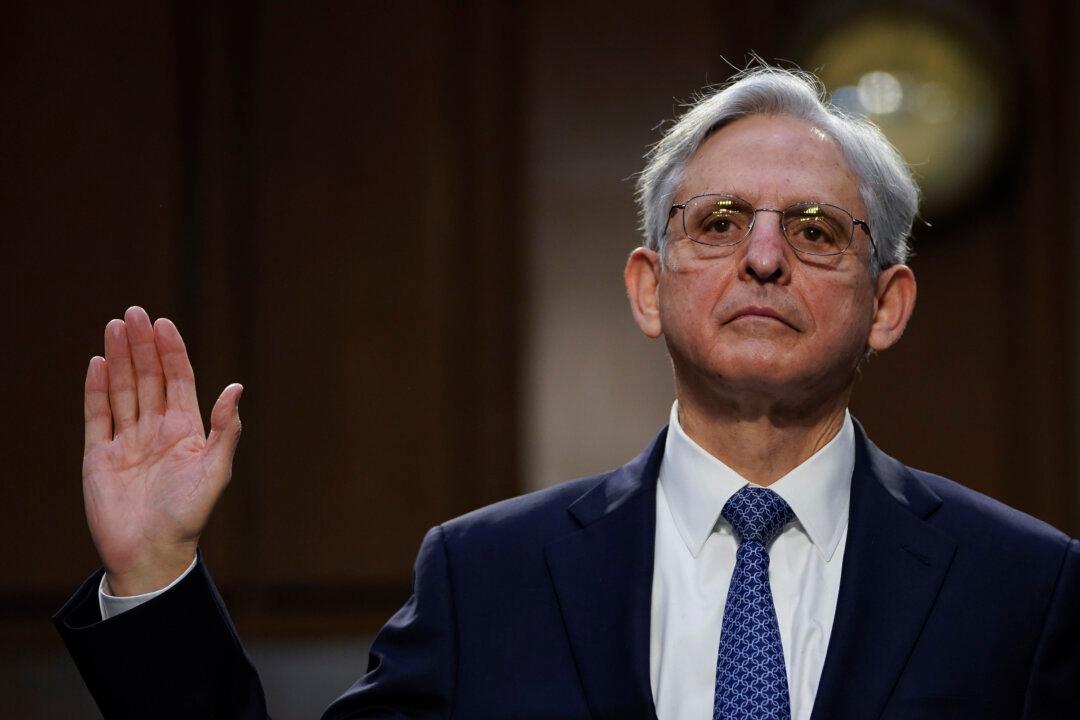President Joe Biden’s nominee for U.S. attorney general, Merrick Garland, gave an evasive answer during his Senate confirmation hearing Monday to the question of whether illegal border crossings should continue to be treated as a crime.
Sen. Josh Hawley (R-Mo.) asked Garland during a Senate Judiciary Committee hearing whether unlawful border crossings into the United States “should remain a crime.”





